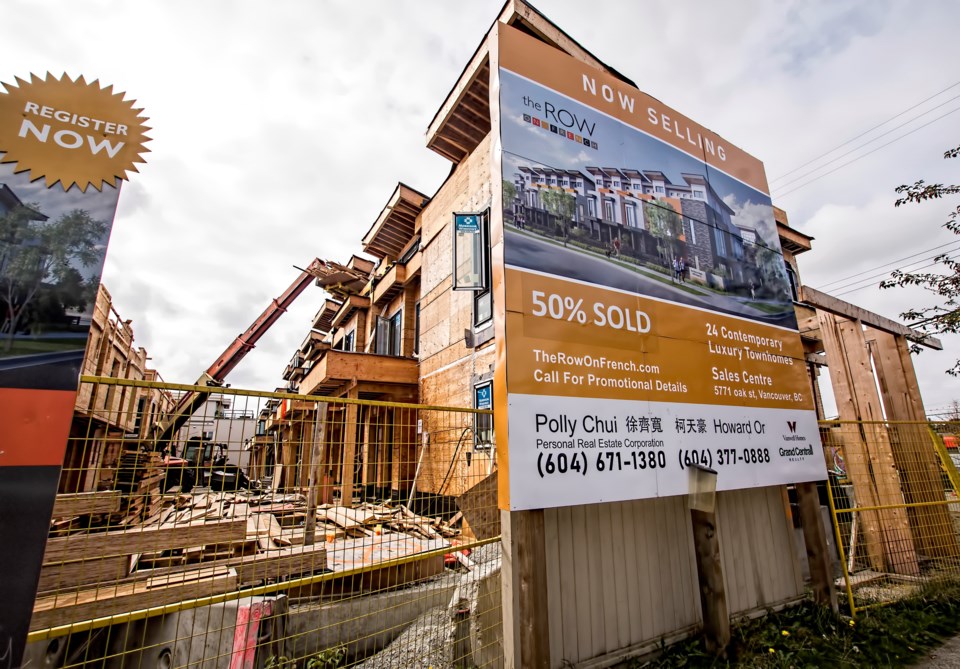As B.C. grapples with boosting its low housing supply, policy lessons from other cities across the globe could offer a blueprint on how to do it right.
That's according to a Sept. 26 report from the B.C. Real Estate Association (BCREA), which concludes that evidence from Auckland, New Zealand, shows certain policy changes can achieve a 50 per cent increase in housing permits in less than a decade while also lowering housing costs.
Housing starts per capita in B.C. are “historically low,” said the BCREA report. But if housing starts increase 50 per cent by the end of this decade, activity would be in line with that of 1990s.
By implementing housing policies that encourage upzoning, or increasing the amount of developable land, the metropolitan Kiwi city experienced a housing boom and a softening in prices.
“Our report is really about how do we finally address that problem and mismatch between supply and demand,” BCREA chief economist Brendon Ogmundson said in an interview.
He said the report is about finding a “long-term picture on housing supply.”
Auckland implemented what the report describes as an “aggressive” upzoning strategy in 2016. The Auckland Unitary Plan (AUP) increased floor space ratios on about three-quarters of residential land in the region, allowing for wider structures and more units to be built on properties.
“If you can expand the amount of floor space to the lot size, that means you can use different types of houses. You can have a duplex or a triplex that could be used on the entire lot,” said Ogmundson. “It just expands the type of unit that you can build, and it expands the economics and the attractiveness of building.”
Home prices in B.C. have increased by 40 per cent since the beginning of the pandemic, with new rental costs rising by a similar amount, the report said.
To mitigate against this, the BCREA says the AUP strategy can be used to help guide B.C.’s Homes for People plan, introduced by Premier David Eby in April 2023.
The multibillion-dollar plan aims to build more homes as quickly as possible and includes plans to allow three to four homes on a traditional single-family detached lot.
Eby teased the introduction of the legislation for this fall at last week’s Union of B.C. Municipalities convention.
“If we pursue these types of reforms and we can really increase building, especially in the missing middle, it's going to have really positive benefits,” said Ogmundson.
“We could see real beneficial improvements in affordability, but probably not till close to the end of this decade. So it's going to be a wait.”
Vancouver city council voted to approve a “missing middle” housing motion on Sept. 15. The decision will permit up to six homes on lots previously reserved for single-family homes or duplexes. For larger lots, up to eight homes for secured rental housing will be allowed.
The term “missing middle” refers to housing types that could fall between single-family homes and condominium towers.
While Vancouver’s motion allows for more units to be built, it doesn’t expand the usage of the lot in the same way that the AUP did, Ogmundson said.
Studies cited in the report show that rents for three-bedroom units in Auckland were 22 per cent to 35 per cent lower than a control group, which represents what rental prices would have been without the AUP.
For two-bedroom units, there was a 14 per cent to 21 per cent decrease in rents when compared to the control group.
Auckland is not the only place that has seen success from upzoning policies. Minneapolis, Minn., became the first city in the U.S. to eliminate single-family zoning in late 2018.
States such as California, Oregon and Washington have also introduced policies to end single-family zoning.





